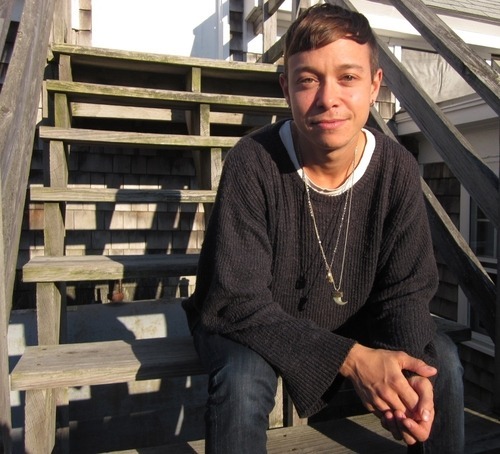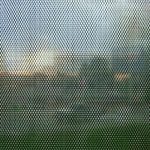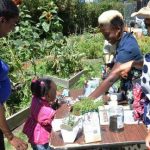Meet a NYFA Artist: Ari Banias
NYFA speaks with 2011 Poetry Fellow Ari Banias.
NYFA: Hi Ari, can you tell us about what you’re working on and what’s coming up for you?
AB: Right now I’m a writing fellow at the Fine Arts Work Center in Provincetown, which affords me a longer stretch of time than I’ve ever had to focus on my work; I’m putting together a full-length collection of poems. In my immediate future is the isolation of winter on the Cape, which I’ll admit I’m looking forward to with a bit of a masochistic glee. Having lived in dense cities for the last eleven years, I expect some lessons are in store. Also, Provincetown is the precise place where, in 1620, Pilgrims first set foot in the “New World,” so I’m trying to take in what it means for me to be here.
NYFA: How do you view your role as a poet? How does your work position itself socially?
AB: My work’s impulse exists at the crux of the social and the internal, at what I know, in myself, to be a very permeable boundary. I write into, via, and about experience – and I’m interested in its quality and texture not because I think “my” singular experience is supremely valuable, but because I believe setting down that experience has the capacity to connect us, as well as to expose the how and why of our estrangement from one another. I write from both within the dominant culture and outside it; from some combination of alienation and belonging. My poems look toward a world I hope to participate in bringing into existence, but they also arise from the painful, uncomfortable positions most of us are forced into by the social and cultural systems that govern our relationships and lives.
People often say language is political; what gets said less often is that subjectivity is also political, and so are emotions. A culture that doesn’t value vulnerability or feeling, that denies the validity of particular subjectivities, or that doesn’t discuss its feelings, is truly frightening. We should be worried about what people in such a culture might be capable of doing to one another – and are already doing, have already done to one another, in the name of all kinds of things. A poem inhabits a pause that invites feeling and questioning on the part of its reader/listener. This pause exists alongside wage labor and capital and wars and the state and the “free” market, and, yes, it is certainly inflected by and inseparable from them, but also it takes us aside, however briefly – because poems still are not quite commodities within our economic system. To spend one’s time making something that’s decidedly undervalued within a capitalist system is, I think, a political gesture.
I like what Charles Bernstein says about Robin Blaser’s work: that “the poem is the possibility of possibility.” Poems contain the potential for changing us, mostly in intangible, unknowable ways – by opening up little rooms inside us for feeling and articulating and acknowledging and imagining and questioning. I don’t know that poems start revolutions, per se. But I do think actual change begins in these small spaces inside each of us, spaces that want recognition. A poem is not a crowd, a law, a fist, a stone. Poems, though, in their ability to illuminate and connect and name, might be a kind of kindling.
NYFA: What are some of the people, things, or ideas that are influencing you strongly right now?
AB: I’m paying attention to the popular protest movements that have mobilized on Wall Street and nationally and globally, to their spirit of exuberant insistence. It feels like a tremendous “teaching moment,” and one of building and strengthening connections. These movements are insisting not only on the accountability of the system to the people, but also that the people working within these movements be accountable to one another. That’s a crucial piece, and it’s complicated. I’m thinking about gestures that embody connectivity and expansiveness, rather than exclusivity, and I’m noticing the poets and artists and organizers and people near me who are thinking critically and democratically about community. And who are working – culturally, creatively, personally, socially – towards the vision of that world, one that does not yet exist but that could, what the Black poet Margaret Walker called “a world that will hold all the people.” In that vein, I’m also pretty inspired by poets considering race, identity, and systems of power in relation to writing and writing communities – in particular, recent interventions of Claudia Rankine’s, and Farid Matuk, Evie Shockley, Juliana Spahr, and Timothy Yu’s contributions to a conversation in Evening Will Come. I continue to be impacted by James Baldwin’s essays on American culture, race, and the work of the artist; Muriel Rukeyser’s writings on the fear of poetry. And I’m forever wrestling with I/we/they/he/she, asking myself what a queer and trans poetics might look like, meditating on fermentation (and what it might teach me about creative practice), and trying to embrace John Keats’s idea of “negative capability.”
NYFA: What is your process like?
AB: It’s my desire to get intimate, in writing, with what tends to be polished away or cropped out or ignored or half-remembered – and that which is incongruous, unwieldy, awkward. I find I’m drawn to the unswept corner, the feeling inside the pocket of a jacket unworn for years, a plastic bag snagged in a blooming tree, and what’s behind the building, or the curtain, for that matter. And I seek out those corresponding places or things internally, too – the weird emotional/psychic junkyards. In moments of doubt, I often turn to other writers whose work demonstrates faith in the strangeness and particularity of their own perceptions, who trust that this strangeness can be a kind of wisdom. They’re part of my process too.
NYFA: What is your workspace like?
AB: For the next six months it’s a wide wood desk stacked with favorite books, stones, found objects of various kinds – pushed right up against a window. It’s also the Cape Cod bay and the otherworldly sand dunes and the ferocious, humbling Atlantic, which help me think, or keep me from over-thinking.
NYFA: How has the NYFA Fellowship affected your life?
AB: It’s an amazing feeling to have people who don’t know you say,yes, that’s right, keep going,and then back it up. I’m so grateful. And I feel responsible to that gesture of recognition and encouragement, in a good way.
NYFA: Thank you, Ari!
Ari Banias grew up in Los Angeles, El Paso, and the suburbs of Chicago. He holds an MFA in Creative Writing from Hunter College of the City University of New York, where he was a teaching fellow. Poems are forthcoming or have appeared in Sycamore Review, Drunken Boat, Aufgabe, FIELD,the anthology Collective Brightness: LGBTIQ Poets on Faith, and elsewhere. He has been awarded residencies at Caldera and Headlands Center for the Arts, and is a 2011-2012 Writing Fellow at the Fine Arts Work Center in Provincetown. He makes his home in Brooklyn, NY.
To learn more about Ari Banias, visit his website.





